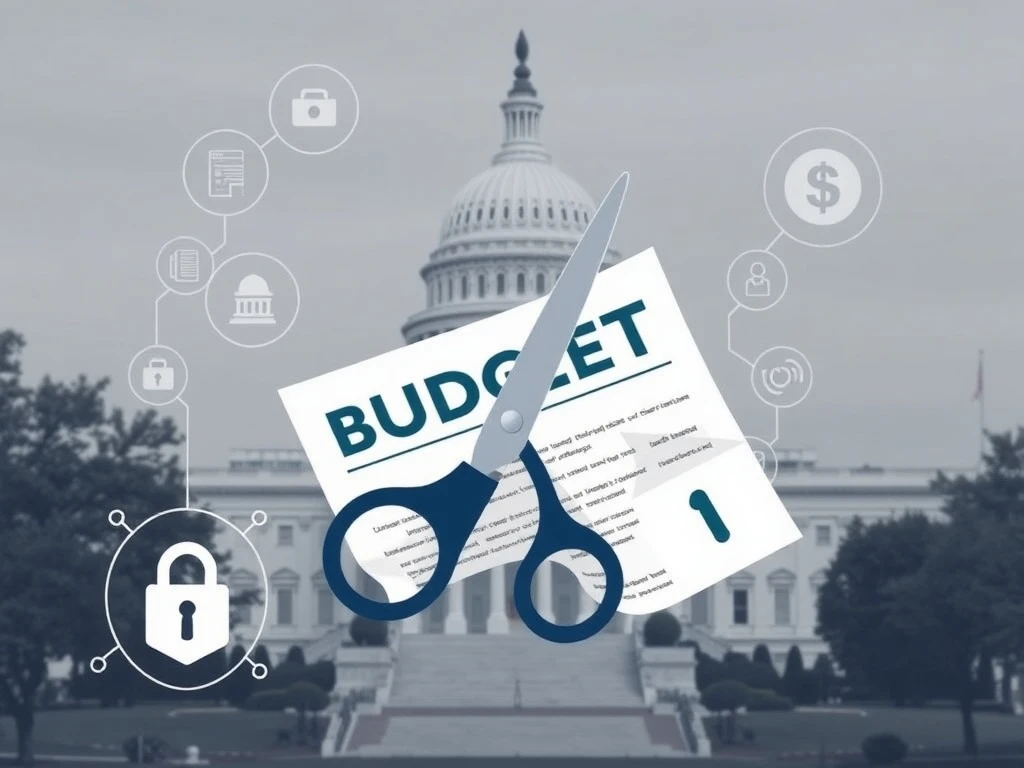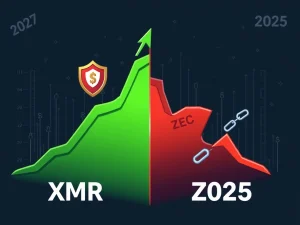Alarming SEC Budget Cuts: House Republicans Target Financial Regulation and Cybersecurity

The world of finance, particularly the rapidly evolving crypto space, often finds itself at the crossroads of innovation and regulation. Recent developments on Capitol Hill signal a significant shift in this delicate balance, with House Republicans proposing a substantial cut to the SEC budget. This move isn’t just about trimming government spending; it’s a direct challenge to key financial regulations and could reshape how public companies, including those in the crypto sector, operate.
Alarming Moves: House Republicans Target the SEC Budget
In a bold move that has sent ripples through the financial industry, House Republicans have put forth a plan to significantly reduce the Securities and Exchange Commission’s (SEC) budget for fiscal year 2026. The proposed cut amounts to a 7% reduction compared to the current fiscal year, translating to approximately $153.9 million less for the agency. This proposal emerged from a House Appropriations subcommittee, which voted along party lines to advance a $23.3 billion funding plan for various federal agencies.
The subcommittee’s chair, Dave Joyce, framed the measure as an effort to “rein in wasteful spending.” However, critics and observers see it as a deliberate strategy by the GOP to dismantle regulations implemented during the Biden administration, many of which have had a direct impact on the burgeoning cryptocurrency landscape. This isn’t merely a numerical adjustment; it represents a philosophical divergence on the role of regulatory oversight in the modern economy.
The Controversial Cybersecurity Rule Under Fire
A core component of the proposed SEC budget cuts involves axing funds specifically allocated for enforcing a critical Biden-era rule: the requirement for public companies to disclose cyber incidents swiftly. Adopted in mid-2023, this rule mandates that public companies and foreign private issuers report material cybersecurity breaches within four days, unless doing so poses a national security or public safety risk. Additionally, companies must annually disclose their cyber risk management strategies.
This cybersecurity rule was designed to enhance transparency and investor protection in an increasingly digital and vulnerable world. The rapid disclosure requirement aimed to provide investors with timely information about potential threats that could impact a company’s financial health or operations. However, it quickly became a point of contention.
Why the Cybersecurity Rule Sparked Debate and Its Impact on Crypto Regulation
The rationale behind targeting the cybersecurity rule stems from various criticisms, primarily from banking advocacy groups. In May, a coalition of these groups urged the SEC to revoke the rule, arguing that it had been “weaponized as an extortion method by ransomware criminals to further malicious objectives.” They claimed that the strict disclosure timeline could inadvertently empower cybercriminals, giving them leverage over companies fearing the financial and reputational fallout of public disclosure.
The crypto industry, often at the forefront of digital innovation and also a frequent target of cyberattacks, has firsthand experience with the complexities of this rule. Coinbase, a prominent cryptocurrency exchange, serves as a stark example. In May, the company disclosed that some of its customer support contractors were bribed, leading to leaks of user data. Following this incident, Coinbase rejected a $20 million ransom demand and estimated potential damages reaching up to $400 million. This case highlights the delicate balance between transparency, national security, and the potential for rules to be exploited by malicious actors. For companies navigating the intricate world of crypto regulation, such disclosure requirements add another layer of operational and legal complexity.
Broader Implications for Financial Regulation and Market Oversight
Beyond the cybersecurity rule, the Republican funding plan includes other significant restrictions on the SEC’s operations. It seeks to prohibit the agency from using funds to collect personally identifiable information through its long-standing system for tracking equity and options trading activity. This system, known as the Consolidated Audit Trail (CAT), is a crucial tool for market surveillance and detecting illicit trading activities. Restricting its funding could significantly impede the SEC’s ability to monitor market integrity.
Furthermore, the proposed budget would ban the SEC from using funds to create new rules governing private securities offerings. This area of financial regulation is vital for capital formation, especially for startups and emerging companies, including many in the blockchain and crypto space. Limiting the SEC’s rulemaking authority here could lead to less oversight in a sector that has historically been prone to investor protection issues.
Democratic Pushback: A Blow to Everyday Americans?
Democrats in the House Appropriations Committee have vehemently opposed the Republican funding plan, characterizing it as a “blow to everyday Americans.” Committee Ranking Member Rosa DeLauro stated that the plan would enable “greedy corporations [to] cheat on their taxes, poison consumers, [and] continue to scam everyday Americans out of their hard-earned money.”
This partisan divide underscores fundamental disagreements about the role of government in regulating markets. Republicans argue for less government intervention and reduced spending, believing it fosters economic growth. Democrats, conversely, emphasize the need for robust regulatory oversight to protect consumers, investors, and maintain market fairness. The proposed cuts to the SEC budget are seen by Democrats as weakening the agency’s capacity to enforce laws and protect the public from corporate malfeasance, potentially impacting everything from investor fraud to environmental regulations.
What Lies Ahead for Crypto and the Regulatory Landscape?
The battle over the SEC’s budget is far from over, but its outcome will have profound implications for crypto regulation and the broader financial landscape. A leaner SEC, with restricted enforcement capabilities, could lead to a less stringent regulatory environment. While some in the crypto industry might welcome less oversight, it could also foster an environment with increased risks for investors and a potential for greater market instability.
Conversely, if the cuts are enacted, companies might face less pressure to comply with certain regulations, or the SEC might have fewer resources to pursue enforcement actions. This could create a more permissive environment for innovation but also open doors for bad actors. The ongoing debate highlights the constant tension between fostering innovation and ensuring robust investor protection in a rapidly evolving digital economy.
Conclusion: Navigating the Shifting Sands of Financial Oversight
The Republican proposal to trim the SEC budget and specifically target the cybersecurity rule represents a significant legislative effort to reshape the landscape of financial regulation. This initiative by House Republicans is poised to impact how public companies manage digital risks and how the SEC performs its vital role as a market watchdog. As this political battle unfolds, stakeholders across all sectors, particularly in the dynamic world of crypto, must closely monitor these developments. The future of regulatory oversight in finance hangs in the balance, promising a period of uncertainty and potential shifts in how businesses comply with federal mandates.









